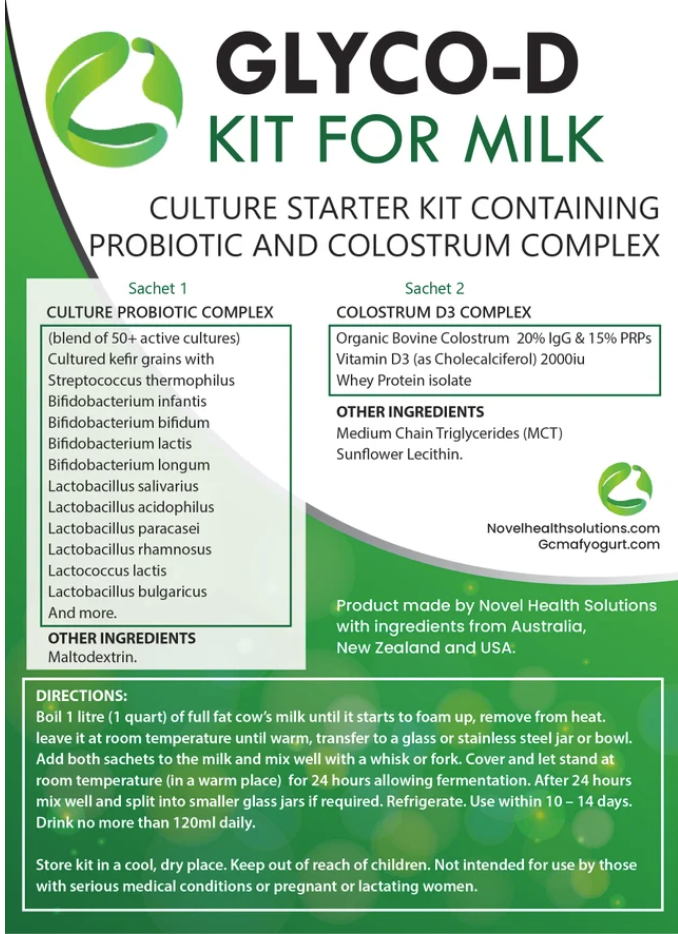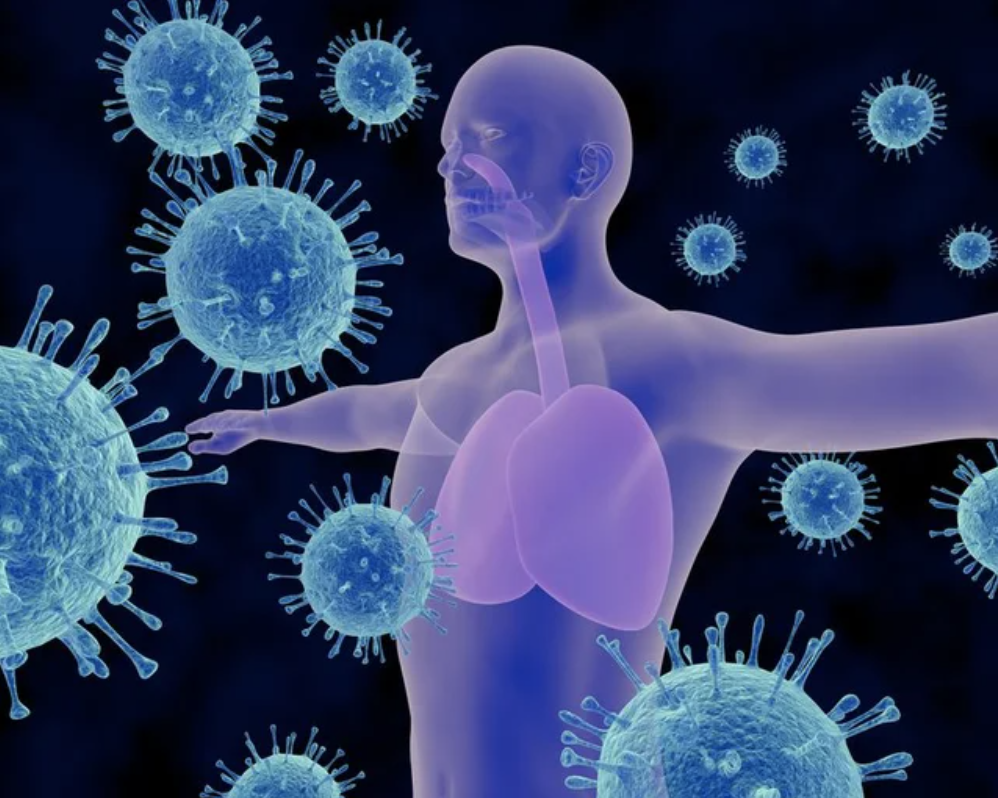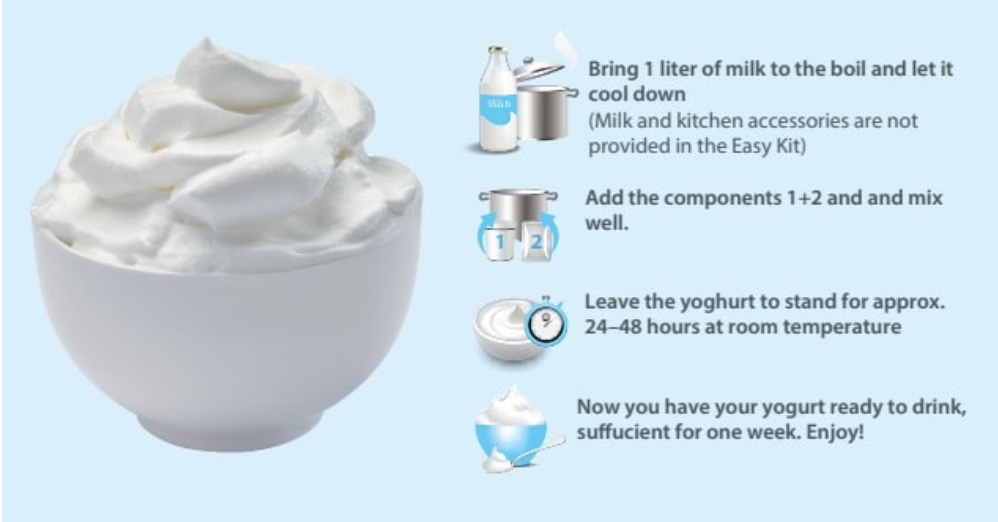GLYCO-D GCMAF YOGURT 1LTR
GLYCO-D GCMAF YOGURT 1LTR
GLYCO-D GCMAF YOGURT 1LTR
Glyco-D Probiotic Yogurt delivers the well known health benefits of over 50 beneficial bacteria strains and lactic yeasts and a prebiotic plus Vitamin D3. Gcmaf yogurt
GLYCO-D supports
the normalization of the natural human microbiome
the intestinal diet with more than 50 probiotic cultures – some of them produce the enzymes ß-galactosidase and sialidase (producing colostrum GCMAF)
the supply of natural immune-stimulating antibodies from colostrum
Glyco-D contains the following:
CULTURE STARTER KIT CONTAINING PROBIOTIC AND COLOSTRUM COMPLEX
Sachet 1
CULTURE PROBIOTIC COMPLEX
(blend of 50+ active cultures)
Cultured kefir grains with
Streptococcus thermophilus
Bifidobacterium infantis
Bifidobacterium bifidum
Bifidobacterium lactis
Bifidobacterium longum
Lactobacillus salivarius
Lactobacillus acidophilus
Lactobacillus paracasei
Lactobacillus rhamnosus
Lactococcus lactis
Lactobacillus bulgaricus
And more.
OTHER INGREDIENCE
Maltodextrin.
Sachet 2
COLOSTRUM D3 COMPLEX
Organic Bovine Colostrum 20% IgG & 15% PRPs
Vitamin D3 (as Cholecalciferol) 2000iu
Whey Protein isolate
OTHER INGREDIENTS
Medium Chain Triglycerides (MCT)
Sunflower Lecithin.
Recent studies have found an association between vitamin D and Covid-19 severity and mortality. Vitamin D may protect from viral infection and ameliorate the symptoms of Covid-19, including the cytokine storm. This is why we added:
Vitamin D3
A Bacterial strain shown to Increase vitamin D3 levels 22.5%
For more information on the use of Glyco-D click here.
For more added benefits we have added a whole host additional bacteria strains to our already impressive list of beneficial bacteria.
Why is this so important ?
Adding additional strains of the same species is important as some strains can do what other strains within the same species can not do.
The bacterial species category defines an organism on the basis of genetic similarity,
biochemical, and phenotypic criteria.
A strain designation reflects descendants of a single organism and are classified based
on unique characteristics defined by serotyping, enzyme typing, protein/nucleic acids/
plasmid characterization, and functional characteristics important to probiotic strains
including: undesirable bacteria inhibition, gastric acid tolerance, adhesion/colonization,
hydrophobicity, immunomodulatory cytokine production, etc.
For enhanced benefits clinically researched strains of the listed bacteria have been added to our Gcmaf yogurt listed below:
LACTOBACILLUS REUTERI
While our product always contained L. reuteri we have have added two specific bacterial strains of L. reuteri used in research.
Studies that experimented with L. reuteri yogurt consumption in animals & humans suggested dramatic health benefits for both. These include the ability to:
Improve skin youthfulness, increases collagen & reduces wrinkles
Accelerate skin healing
Promote thick and shiny hair
Increase testosterone levels in men
Increase the ‘feel good’ hormone oxytocin
Lower stress
Reduce acid reflux and infantile colic
Suppress H.pylori & C.difficile and protects against intestinal infections
Lower pain perception
Increase vitamin D3 levels by up to 25.5%
Decrease incidences of diarrhoea but also increase bowel frequency
Fight candida
Prevent and treat small intestinal bacterial overgrowth (SIBO)
Promote thyroid health and oral health
Protect against certain infections
Reduce insulin resistance
Increase muscle mass and bone density
Glydo-D contains the two specific bacterial strains, L. reuteri used in this research.
Lactobacillus acidophilus
Immunomodulatory function:
Regular administration leads to a modulation of the immunological and inflammatory response in elderly subjects.
Anti-pathogenic:
In vitro six strains of L. acidophilus inhibited H. pylori growth due both to the pH of the solution and its concentration.
Enhanced phagocytosis of Escherichia coli sp. in vitro after consumption by healthy volunteers
Anti-diarrhoeal:
Appeared to prevent radiotherapy-associated diarrhoea
Eliminated infantile diarrhoea in 4 days and allowed patients to return to free feeding and restored faecal flora.
Prevented diarrhoea from amoxycillin in infancy
Anti-candida:
Decreased both candida colonisation and infection in women
Lactose intolerance:
Fermented milk significantly influences lactose digestion and minor development of symptoms in lactase-deficient subjects and lengthens significantly the orocecal transit time compared with regular milk.
Lactobacillus bulgaricus
Immunomodulatory function:
Improved functional activity of mononuclear phagocytes useful to increase resistance to diverse toxic substances and bacterial infection
In vitro beneficial effects on the systemic and mucosal immune system such as induced IgA antibody production by Peyer’s patches
Inhibited the growth of intestinal carcinoma through increased activity of IgA, T cells, and macrophages in animals
Activated the phagocytic and secretory functions of mononuclear cells and increased host resistance to bacterial infections.
Improved mice resistance to S. typhimurium and B. pertussis
Anti-microbial:
Reduced mortality to Salmonella typhimurium infection in mice
Anti-diarrhoeal:
Less weight loss and higher resolution of persistent infantile diarrhoea
Lactose intolerance:
Increased lactase content in fermented milk and significantly reduced symptoms and improved
digestion of the yogurt
Lactobacillus casei
Immunomodulatory function:
Oral administration of Lactobacillus casei stimulated type 1 helper T (Th1) cells, activated thecellular immune system and inhibited incidence of tumors and IgE production.
Prevented enteric infections and stimulated secretory IgA in malnourished animals
Anti-microbial:
Inhibited adhesion of E. coli to the intestinal mucosa of conventional and gnotobiotic pigs, probably mediated by antibacterial substances and stimulation of immunity
Enhanced resistance to systemic infection with Listeria in mice
Anti-diarrhoeal:
The mean duration of diarrhoea after commencing the therapy was significantly shorter in 71 well-nourished children between 4 and 45 months of age.
Eliminated infantile diarrhoea in 4 days and allowed patients to return to free feeding and restored faecal flora.
Significantly decreased severity of acute diarrhoea in healthy children over a 6 month period
Lactose intolerance:
Fermented milk significantly influences lactose digestion and minor development of symptoms in lactase-deficient subjects and lengthens significantly the orocecal transit time compared with regular milk.
Antidiabetic:
Decreased the plasma glucose level, insulin levels and modified the host immune responses in mice with non-insulin-dependent diabetes mellitus.
Lactobacillus plantarum
Anti-pathogenic:
Produces a new two-peptide bacteriocin, which has antimicrobial activity and act synergistically to inhibit a large number of Gram-positive bacteria
Lactobacillus rhamnosus
Immunomodulatory function:
Enhanced IL-10 generation in vivo substantiates the anti-inflammatory properties
Enhancement of IgA response to rotavirus in children with acute rotavirus gastroenteritis
Stimulated rotavirus specific IgA antibody responses, theoretically significant in the prevention of reinfections
Showed specific immunomodulatory effects on the proliferative activity of B and T lymphocytes and may also reduce lymphocyte sensitivity to the cytotoxic effects of lectin mitogens.
Anti-microbial:
Inhibited adherence of a pathogenic Escherichia coli to intestinal epithelial cells in vitro, possibly through increased intestinal mucins.
Anti-diarrhoeal (AAD):
Reduced incidence of diarrhoea in 119 children taking antimicrobials
Significant decrease in patient complaints of gastrointestinal side effects and yeast superinfection while taking amoxicillin
Shortened diarrhoea phase and significantly influenced bacterial enzyme profile and stoolbacterial count
Lactobacillus helveticus
Anti-Microbial
Anti-cancerous:
Hypertension:
Lactobacillus salivarius
Antimicrobial
Anti-cancerous
Infectious Diseases
Urogenital Infections
Lactococcus lactis
Antimicrobial:
Identified the production of a novel bacteriocin (antimicrobial peptide)
Strongly reduced the occurrence of yeasts and bacteria in voice prosthetic biofilms
Produces nisin is an antimicrobial peptide that can be used in food packaging to protect against Salmonella contamination
Produced bacteriocin active against some food-borne pathogens including Staphylococcus aureus, Listeria monocytogenes and Salmonella typhimurium
Antibacterial activity against Listeria monocytogenes ATCC 7644 and Bacillus subtilis ATCC 33712
Simultaneously produced both antimicrobial agents pediocin PA-1 and nisin A
Bacillus subtilis
Immune System:
Enhanced Th1 response
Helped activate innate immunity. Stimulation of antigen-presenting cells and T lymphocytes was also markedly enhanced
Anti-Pathogenic:
Shown to improve drug compliance, reduce side effects and enhance the intention-to-treat eradication rate of Helicobacter pylori.
Streptococcus thermophilus
Immunomodulatory function:
Transient production of interferon induced in healthy subjects after consumption of L. bulgaricus
Stimulated macrophage and T-cell cytokine production
Anti-microbial:
Produces a bacteriocin that exhibited a bactericidal effect against Listeria monocytogenes
Reduced mortality to Salmonella typhimurium infection in mice
Anti-diarrhoeal:
Reduced the incidence of acute diarrhoea and rotavirus shedding in infants admitted to hospital.
Less weight loss and higher resolution of persistent infantile diarrhoea
Anti-candida
Streptococcus thermophilus and its biosurfactants inhibited adhesion by Candida spp
Bifidobacterium bifidum
Anti-cancerous:
Diarrhoea:
Immunomodulatory function:
Infectious Disease:
Irritable Bowel Syndrome:
Bifidobacterium breve
Immunomodulatory function:
The oral administration of B. breve significantly decreased rotavirus shedding in stool samples and prevented rotavirus infection
Oral administration of Bifidobacterium breve activated the humoral immune system, augmented anti-rotavirus IgA production or anti-influenza virus (IFV) IgG production and protected against rotavirus infection or influenza infection, respectively.
The oral administration of B. breve may enhance antigen-specific IgG against various pathogenic antigens taken orally and induce protection against various virus infections.
Bifidobacteria infantis
Immunomodulatory function:
Adjuvant activity of the cell wall of Bifidobacterium infantis for in vivo immune responses in mice predict a role as an immunomodulator in human and animal intestines.
Anti-microbial:
Able to exert an inhibitory effect on Escherichia coli and Clostridium perfringens not necessarily related to acid production
Bifidobacterium longum
Immunomodulatory function:
By increasing mucosal IgA response may protect a host from invasion of the intestinal mucosa by dietary antigens that have escaped enzymatic digestion in the intestine.
Anti-microbial:
Decreased E.coli translocation
Improved the faecal properties such as faecal ammonia concentration and beta-glucuronidase activity.
Repeated inoculation decreased and kept down the initial E. coli population
Lactose intolerance:
Might reduce breath hydrogen response and symptoms from lactose malabsorption
Importance of the gut microbiome on overall health
Beyond ‘immediate’ digestive disorders such as irritable bowel syndrome or heartburn, scientific research continues to highlight links between the gut microbiome and many strands of health, from skin condition to body weight, and even mental health.
Delivers scientifically proven prebiotic promoting properties that positively influence digestive health
Higher percentage of di- and tripeptides for enhanced absorption and digestibility from the included WPI
Fermented Whey Protein Isolate contains all the essential branched chain amino acids (BCAAs) required for muscle growth and maintenance
WPI supplementation increases the bacteria’s survival rate to environmental stresses, which is an essential parameter for therapeutic effects.
Efficient in preventing mucositis
Source of Vitamin D3
Highly active immunomodulatory action
Produced with fresh whole cows milk
50+ strains of bacteria (now even more added for a stronger yogurt)
MAF three binding sites activated
No special tools or equipment needed
Lower more affordable pricing
Contains everything you need just add milk
Normalizing Immunity
Normalizing Bowel Function
Improving Energy Levels
Improving Mental Clarity
Reducing Food Allergies
Optimizing Athletic Performance
Promoting Longevity
Supporting Cancer Care
Healthy human microbiome functions in regulating and maintaining health:
Regulation of inflammation and immunity.
Regulation of hormonal metabolism.
Blood sugar and appetite regulation.
Synthesis of vitamin K and biotin.
Synthesis of many neurotransmitters.
Liver health and detoxification pathways.
Enhanced mineral bioavailability.
Control of unwanted gut microbes.
Naturally fermented
The growth of good bacteria is achieved with natural fermentation processes. The final product contains bioactives from the fermentation.
EASY TO PREPARE:
You will need:
1 Litre of whole, organic, pasteurized, homogenized or raw milk (full fat not fat reduced). Do not use Ultra-pasteurized (UHT) milk as the high heat used breaks down the milk proteins.
You can not use Rice, Soy, Almond or Lactose-Free, 2% or Fat Free Milk these types of milk are not suitable and will not product the desired product. Goat’s milk may be used if the same guidelines are followed. Final product thickness may change depending on what type of milk is used. Many people find Goats milk produced a runnier end product.
1 Litre pot / saucepan for boiling milk • Large glass bowl • Plastic, silicon or steel long-handled cooking spoon (not wood) • 1 stainless steel tablespoon or whisk • Paper towels • Aluminum foil.
Firstly make sure that all items you are going to be using to make the yogurt are washed with warm soapy water, rinsed and completely dry.
1. To make yogurt, pour 1 litre (equals 1 US quart) of milk into a high sided saucepan. For this recipe use whole mammal milk only.
2. Heat the milk slowly until it starts to climb the side of the saucepan (boils and foams up). (you need to continually stir the milk to stop it from burning).
3. Remove the saucepan from heat and allow to cool to room temperature (68-86º F) or (20-30º C) without stirring. Remove skin (casein) that has formed on top and discard it.
4. Add the Yogurt Cultures and Colostrum into the cooled milk, using a whisk to mix the milk and powders together.
5. Pour the mixture into a jar or bowl and cover loosely with aluminum foil, put in a warm place or if using a yogurt maker follow their instructions.
6. Do not move or stir the yogurt for 24 hours.
7. In cooler weather you may need to leave the yogurt for 48 hours.
The yogurt will ferment in 24 to 48 hours (depending on room temperature). Check after 24 hours for the proper thickness. If still not ready, check again after 48 hours. You can check from time to time by taking a tablespoon and scooping a small amount from the edge of the container. Do not stir the yogurt because stirring will stop the fermentation process.
If 48 hours is approaching and yogurt is still too runny due to cool conditions, the container can be placed in the kitchen sink that has hot/warm water in it (not boiling) for a few hours to speed up the fermentation process. Care must be taken to ensure the sink does not over flow when container in placed in it or that water level is much lower then that of the container level.
When 24/48 hour fermentation is complete simply stir your yogurt and transfer a clean jar or container if required and refrigerate. You may split the product into individual single serving glass jars, or it can kept in a larger container. Refrigerate for 2 hours before consuming and keep refrigerated. Discard any unused amount after 2 weeks.
This GcMaf yogurt kit gives added benefits that no supermarket yogurt does as it contains the health benefits of over 42 beneficial bacteria strains plus lactic yeasts and a prebiotic.
This GCMAF YOGURT contains essential probiotics to restore healthy gut function, digestion and immune health. These probiotics work synergistically with each other and are blended in specific ratios to ensure maximum benefits and is designed to produce active GcMaf from the probiotics interaction with organic colostrum.



